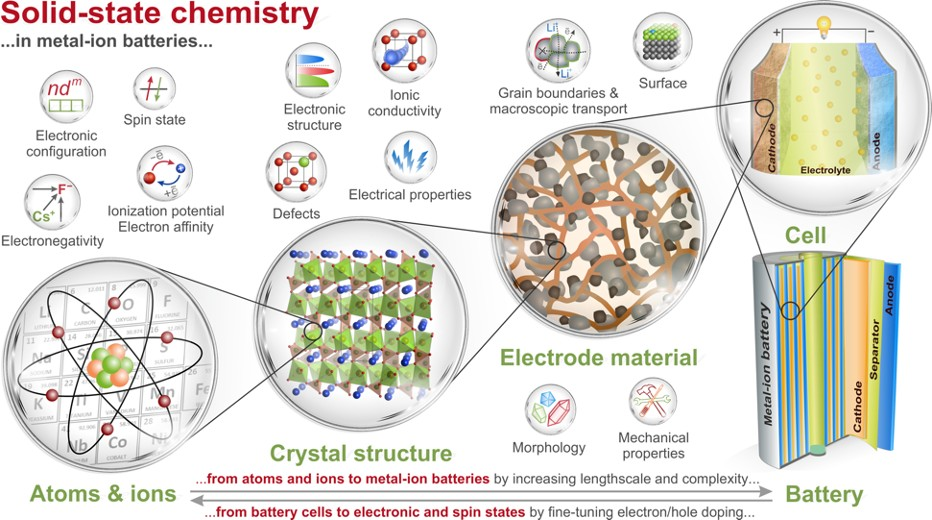
Image Credit: Skolkovo Institute of Science and Technology.
Metal-ion batteries are the key drivers that allow a quick yet smooth transfer to renewables and green energy to ensure a sustainable planet. The ingeniously developed electrode materials have significantly contributed to the advent of high-performance Li-ion batteries finally awarded the 2019 Nobel Prize, implying the role of solid-state chemistry.
For the existing chemistry community, it is a huge challenge to achieve the targeted development of innovative metal-ion battery materials to take the technology to the next level.
The separate properties of ions and atoms encrypted in the Periodic Table together with the basic trends and principles multiplied by additional levels of complexity form numerous prospective combinations for researchers to identify new battery electrodes.
It is evident that scientists urgently require solid guidelines while scouring through this huge parameter space for the most ideal chemical structures and combinations.
The review published in the Nature Communications journal not just outlines and describes the basic chemical principles and recipes but also discusses the latest achievements in the design of solid electrolytes and electrode materials by demonstrating the interplay between crystal and electronic structure, chemical composition, as well as electrochemical properties.
The team has highlighted the vital role of advanced techniques: imaging, diffraction, and spectroscopic characterization methods together with solid-state chemistry techniques for enhancing battery materials, thus opening emergent directions for further studies.
In a near prospect we foresee way more vitally essential discoveries of functional materials enabled by solid state chemistry. All students and researches who are eager to contribute to the development of current and upcoming technologies intended to make a better world are warmly welcome to enroll in our materials chemistry courses delivered within the materials science Master and PhD programs at Skoltech.
Stanislav Fedotov, Professor, Skolkovo Institute of Science and Technology
According to Professor Artem Abakumov, Director of CEST, “With this brief review, we demonstrated that behind seemingly applied research targeting the specific product—metal-ion batteries—a wealth of fundamental science is hidden.”
Rational design of advanced electroactive materials and solid electrolytes for the future batteries calls for deep understanding of crystal chemistry, chemical bonding and electronic structure of solids, ionic transport, electrochemistry and up-to-date characterization techniques coupled with the broad vision stemming from the adjacent branches of solid state chemistry.
Artem Abakumov, Professor and Director, Skoltech Center for Energy Science and Technology
“Powerful computational methods of material’s design and discovery are coming to empower the researchers in the nearest future, but they must act hand-in-hand with the scientific wisdom brought by a multifaceted solid-state chemistry approach,” concluded Abakumov.
Journal Reference:
Abakumov, A. M., et al. (2020) Solid-state chemistry for developing better metal-ion batteries. Nature Communications. doi.org/10.1038/s41467-020-18736-7.